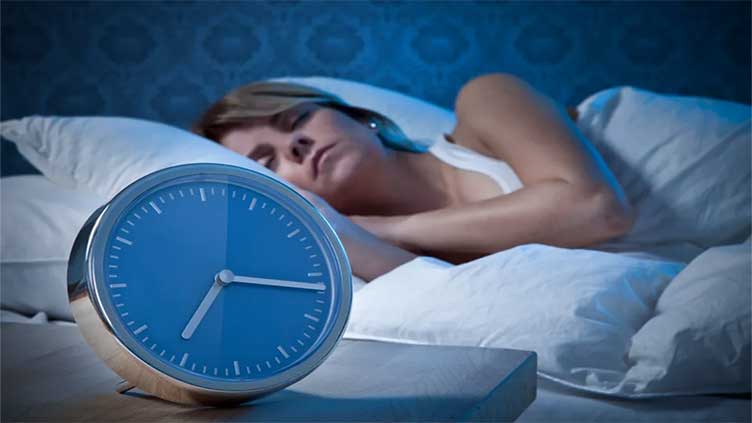Medic reveals most dangerous time to go to sleep

Sleep before midnight to improve your overall health
(Web Desk) - While a late bedtime may seem better than no bedtime at all, if you find yourself falling asleep after midnight it could lead to a number of health issues, he says.
Dr Saurabh Sethi, a gastroenterologist, recently issued an urgent warning to people using plastic water bottles and heating up their leftovers in takeaway containers, as the material is showing up in our brains.
Now, the 42-year-old has revealed to his 504,000 followers on TikTok (@doctorsethimd) the dangerous effects going to sleep after midnight has on our bodies – especially our minds.
In a clip, which has racked up 29,000 views and hundreds of likes, he explains the four ways in which our body suffers.
“If you regularly stay up past midnight, you might experience several health issues,” the doctor, from California, US, says.
“This means you are generally getting less than seven to nine hours of sleep.”
The NHS recommends people get seven to nine hours sleep - in line with the 'golden eight hours'. But really, everyone is different.
But you do need adequate quantity and quality to allow the body to optimally function and repair itself, promoting overall health and well being.
The first effect of staying awake past midnight is weight gain, Dr Sethi says.
Indeed, poor sleep has been linked to weight gain in research. It disrupts appetite and fullness hormones and sleepiness causes you to reach for high-calorie foods.
A study in the Journal of the American Medical Association (JAMA) found a 20 per cent greater risk of obesity or large waistline in those who went to sleep at midnight or later compared to those who slept between 8 and 10 pm.
Second, Dr Sethi says sleeping past midnight causes a decline in mood, and thirdly, stress levels will increase.
A study from Stanford Medicine, published in Psychiatry Research, suggests that sleeping before 1am, regardless of individual chronotype (natural sleep-wake preference), is linked to better mental health.
This study found that those who go to bed later than 1am have a higher risk of developing mental health issues like depression and generalised anxiety disorder.
Lastly, Dr Sethi says "you may struggle with concentration and thinking during the day".
Sleeping before midnight can enhance concentration because the first few hours of sleep, which often fall before midnight, are critical for deep sleep and restorative processes that are vital for cognitive function and memory consolidation - as demonstrated by a study at the University of Arizona.
Getting to sleep before midnight can also offer other health benefits.
A study by the British Heart Foundation found people who fall asleep between 10 and 11pm have the lowest risk of heart and circulatory disease, while those who fall asleep at midnight or later have an increased risk.
Another study published in the European Heart Journal found that falling asleep before midnight is linked to a lower risk of cardiovascular disease.
Dr Sethi advises: “To improve your overall health, including hormone balance, gut health, liver health and mood, aim to sleep before midnight.


